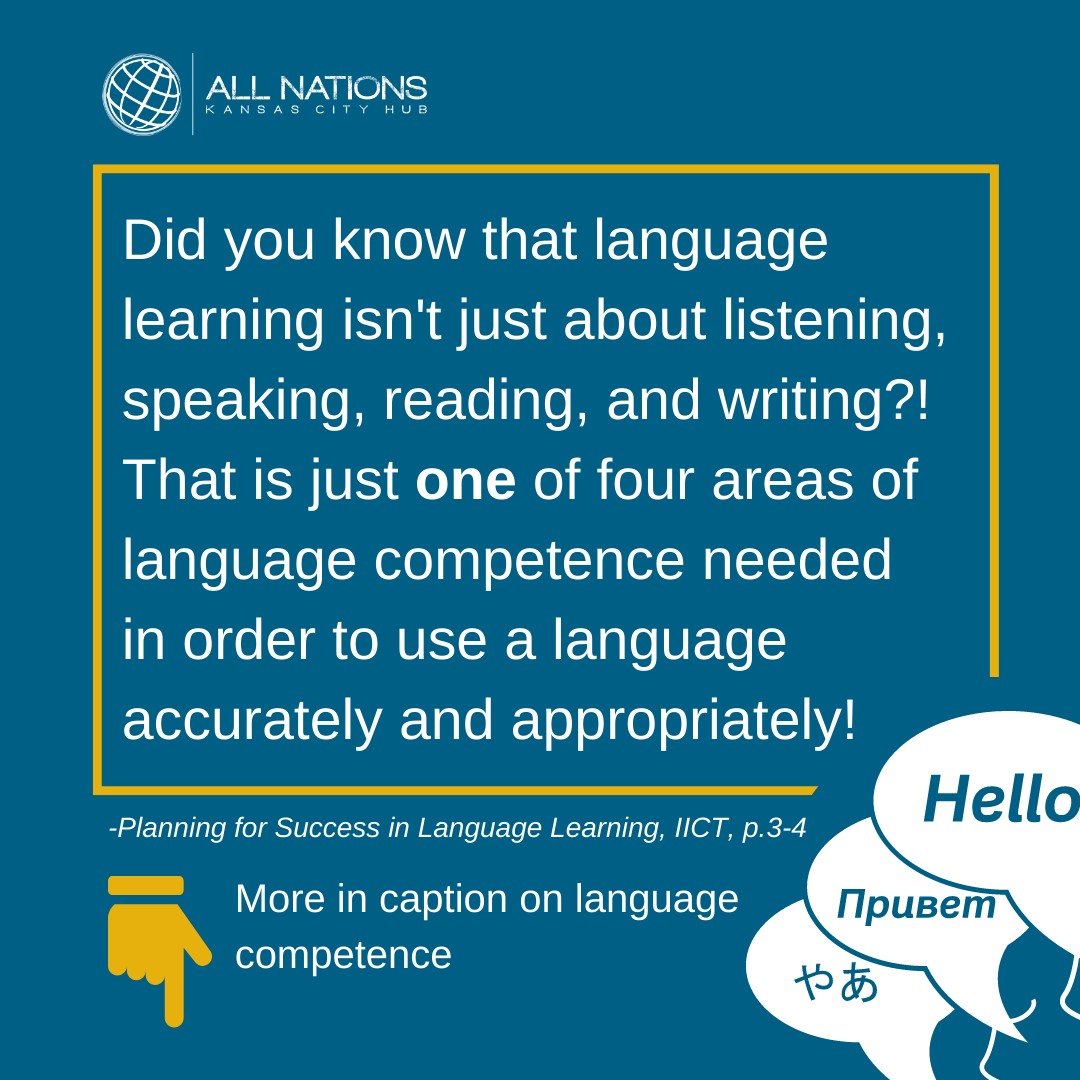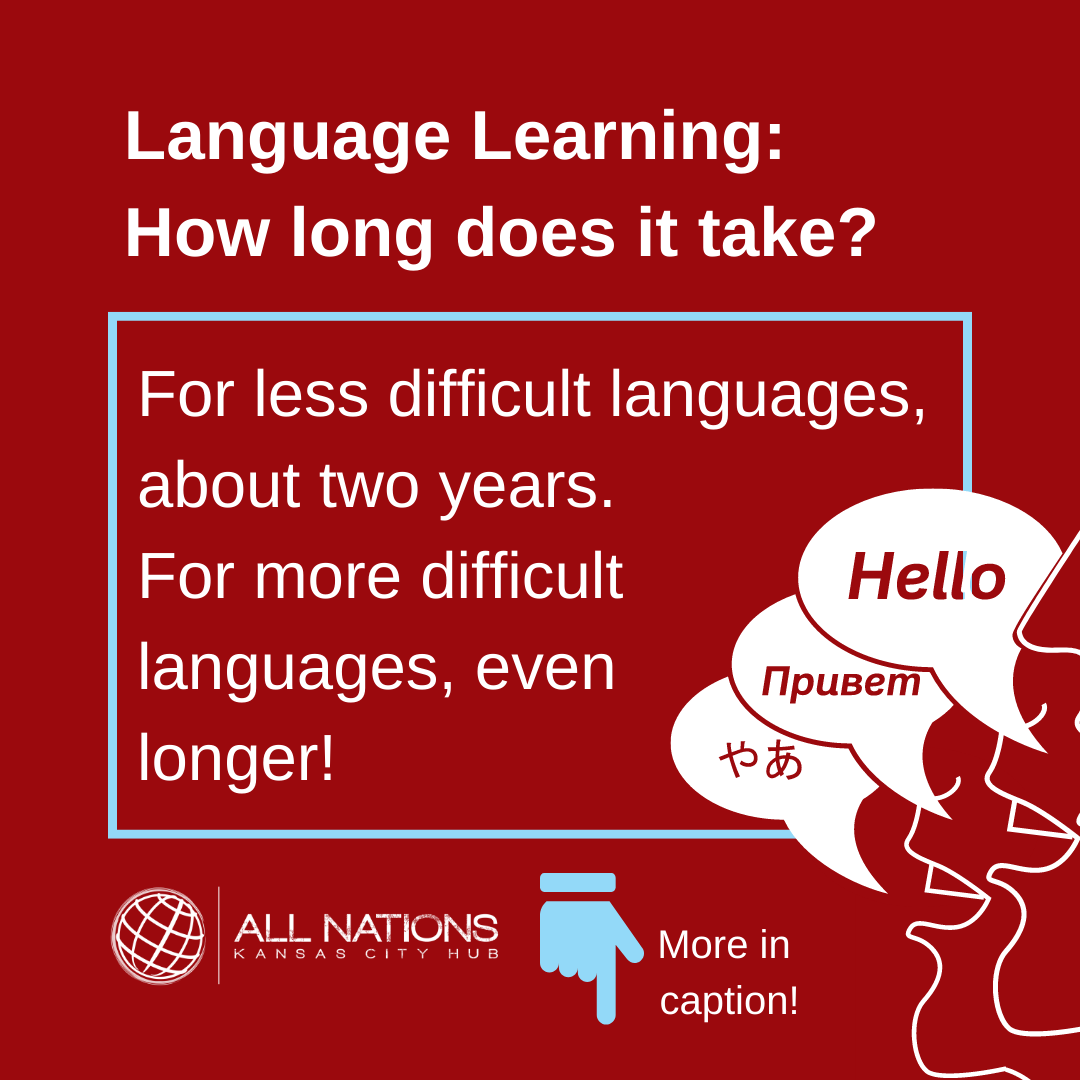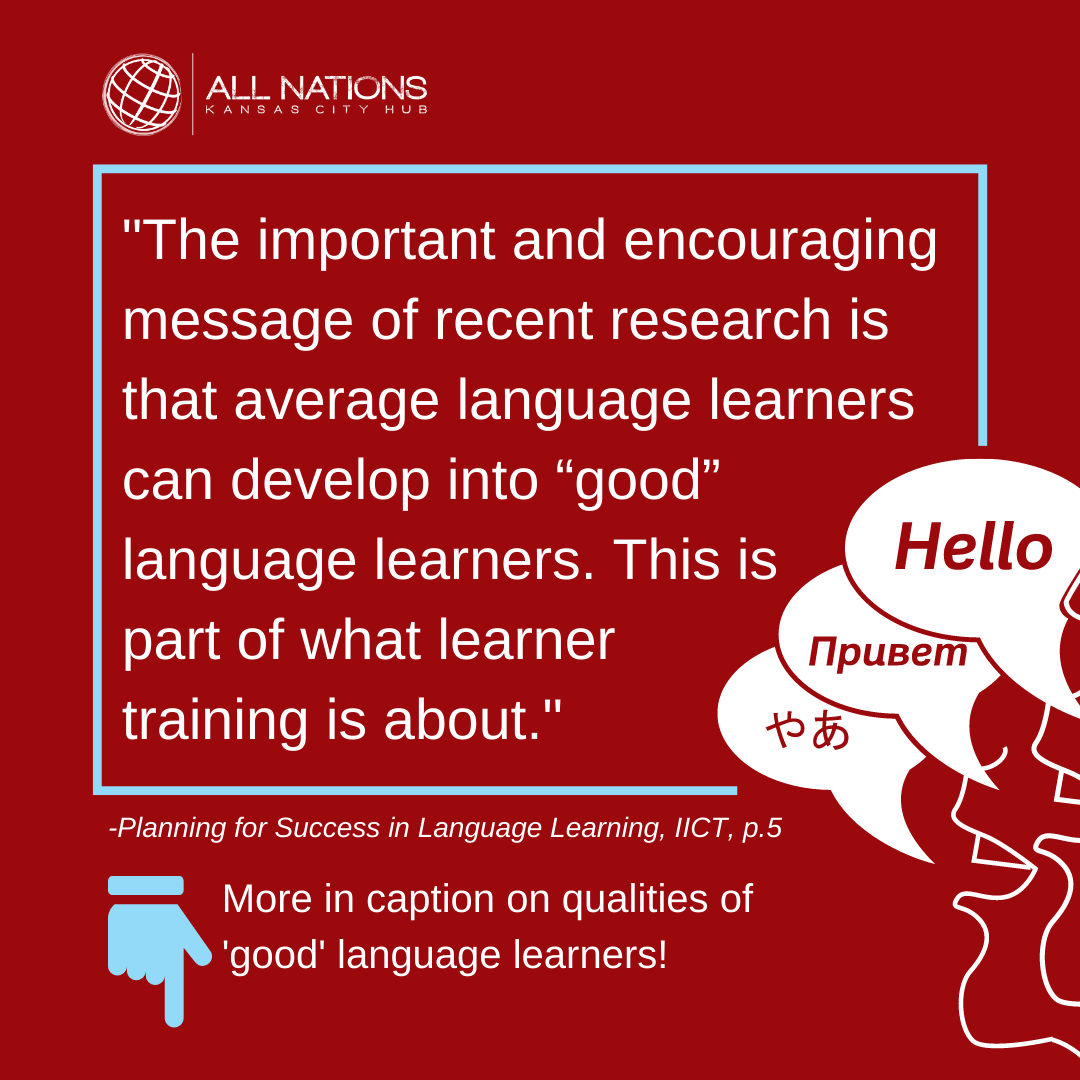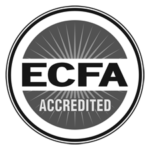Language learning is the most important activity of most missionaries when they first arrive at their new home. They go to communicate the Gospel, and the Gospel will be best understood and received in the heart language of the people they are reaching.
We bring you some key ideas to consider on your language learning journey – or, for you as a friend to understand your missionary friend’s effort at learning language!
A Tool for Humility
Language learning is an active tool God uses to humble us before we are able to communicate the gospel.
God created multiple languages after the tower of Babel, to humble the pride of mankind. Still today, learning another language is a humbling experience. Karen from Southeast Asia shared this story:
“I have a very hard time with a few vowel sounds here. The words for ‘meet’ and ‘be a guest’ are very similar. In speaking I could use them correctly, but in writing I always said things like, ‘do you want to be a guest at my house?’ or ‘let’s be a guest at the coffee shop.’ It was 5 years before a local friend was kind enough to point out my mistake!”
What do You Need to Learn?

The four types of language competence are:
- Formal linguistic competence – listening, speaking, reading, and writing
- Sociolinguistic competence – using the social rules of the language
- Discourse competence – ability to join together sentences to make a cohesive whole
- Strategic competence – ability to adjust your language on-the-spot
It is important to keep these types of competence in balance when learning a language! It is unlikely you will learn all of these types of competence in one language learning setting. You have the responsibility to manage and shape your language learning experience.
– “IICT Learnernotes: Planning for Success in Language Learning” by Lonna J Dickerson, revised 2008, p. 3-4; Institute for Cross-Cultural Training (ICCT), Wheaton College, Wheaton, IL 60187
How Long Does it Take?

“So how long does it take to learn a second language?
For less difficult languages, it often takes new overseas workers about two years to feel comfortable using their new language in most situations.
For more difficult languages and/or more difficult learning situations (e.g., languages for which few language-learning materials exist or situations in which workers are expected to learn two languages in one four-year term), people frequently require a number of years before they can manage with ease certain high-level tasks such as speaking extemporaneously on a technical subject before a group or serving as an interpreter.”
– “IICT Learnernotes: Planning for Success in Language Learning” by Lonna J Dickerson, revised 2008, p.2; Institute for Cross-Cultural Training (ICCT), Wheaton College, Wheaton, IL 60187
How Can I Be a “Good” Language Learner?

Does the idea of learning a language overwhelm you? There’s good news – there’s a lot you can do to develop qualities of a good language learner. Check out this list from “IICT Learnernotes: Planning for Success in Language Learning”:
- From the beginning, “good” language learners work to gain acceptance in their new culture.
- “Good” language learners are highly motivated individuals who have positive attitudes toward their new language and culture.
- “Good” language learners are also good culture learners.
- “Good” language learners know themselves.
- “Good” language learners know how to manage their emotions.
- “Good” language learners make their mistakes work for them.
- “Good” language learners assume responsibility for their own learning.
– “IICT Learnernotes: Planning for Success in Language Learning” by Lonna J Dickerson, revised 2008, p. 2; Institute for Cross-Cultural Training (ICCT), Wheaton College, Wheaton, IL 60187
How Does All Nations Support Language Learning?
Before you go, you will begin your language learning journey right with sessions and a personal assessment by a Language Acquisition Trainer and Coach at Church Planting Experience (CPx), All Nations’ missionary training.
After you go, we encourage you to focus on language learning, and continue with the Language Acquisition Trainers and Coaches you met at CPx (the quotes in this post come from them!). They have courses that will aid you in language learning once you are immersed in the language. One of our missionaries says:
“This course gave me wonderful new tools! I was challenged to work so much harder than I had been before but in a much more effective way. Most importantly, I realized how much power I have over my own language learning. It starts with having a plan that I can actually follow and goals that are realistic. But it also requires a mindset shift. Fear was impacting my speaking ability, but I was empowered by this course to realize I don’t have to let perceived fears hold me back in conversation. I don’t have to let mistakes make me embarrassed. They can help me learn. Fear slows me down and negatively impacts me. Effective strategies make a BIG difference!”
Learn more about Church Planting Experience here!

